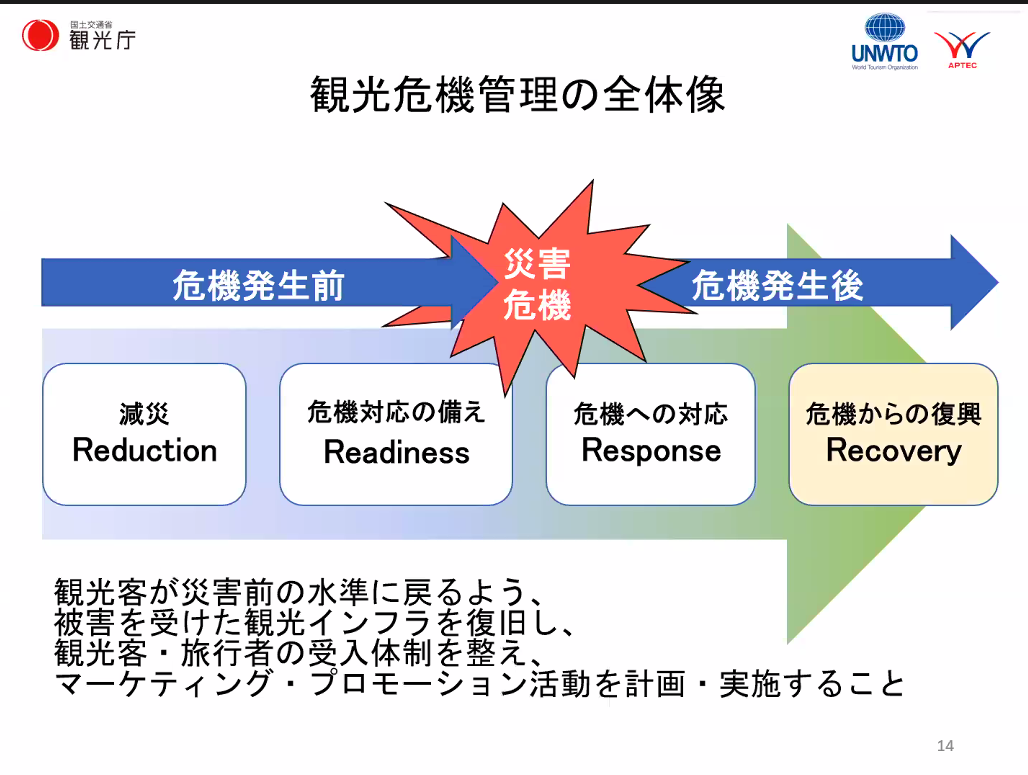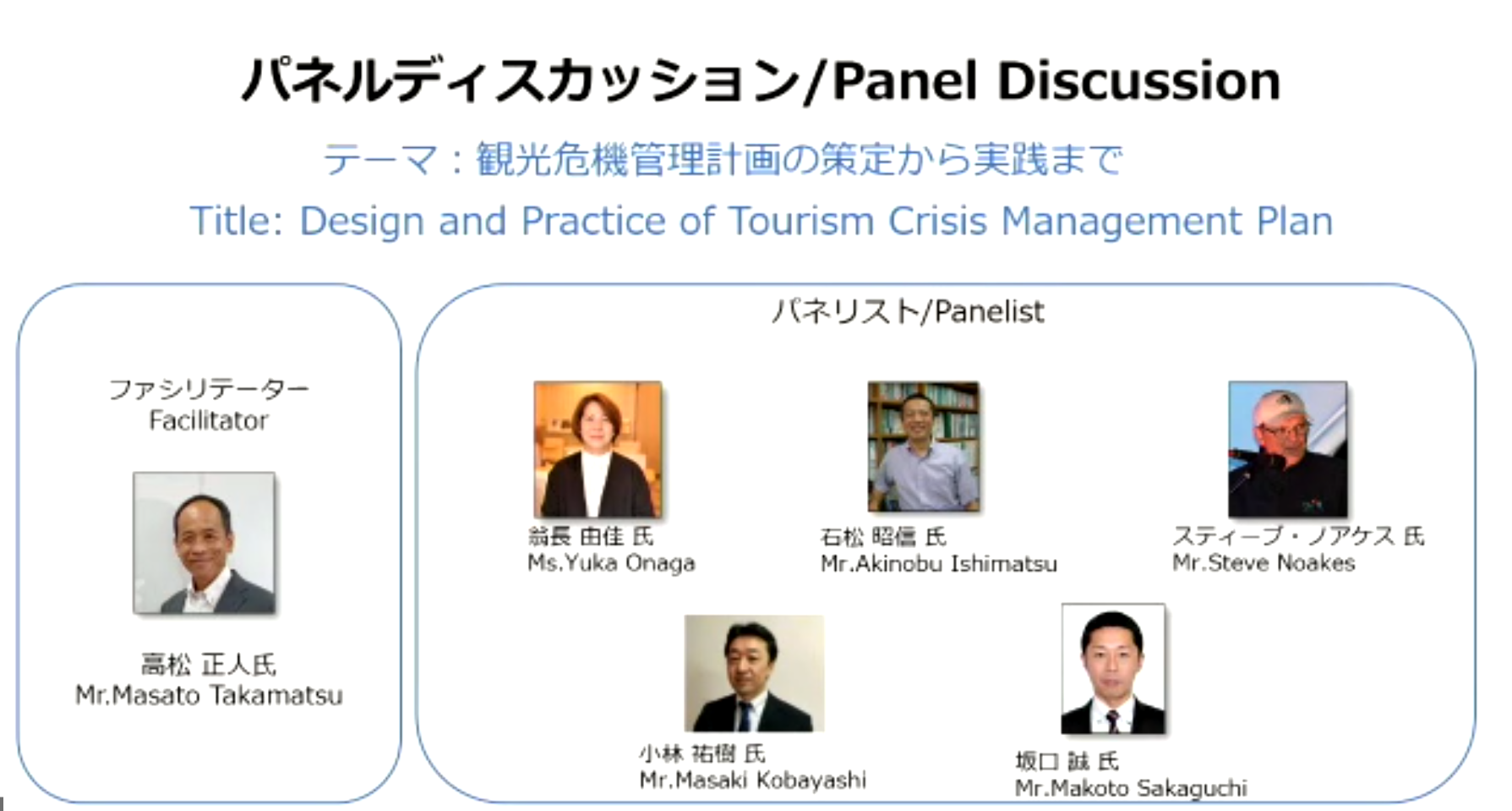(TITC) - On 17th February, APEC symposium was held in Japan on Raising Awareness of Tourism Crisis Management via an online platform with local people actually working in tourism crisis management as well as experts.

Thereby, the symposium will help local governments, DMOs, and tourism operators to deepen their understanding of tourism crisis management. Additionally, the topic will cover the guidelines for tourism crisis management planning and crisis response manual creation with best practises for tourism crisis management, shared by Australia and Japan representatives.
Mr. Tomohiro Kaneko, Vice Commissioner of Japan Tourism Agency spoke in the opening remarks, COVID-19 has left an enormous effect on the world and one of the impacts post the pandemic is tourism crisis. This is a big challenge for all tourism sectors around the world to overcome in the near future. In terms of coping with the crisis, building up a key plan to recover and deal with negative events are necessary.
Dr. Dirk Glaesser, Director of Sustainable Development of Tourism Department, United Nations World Tourism Organisation (UNWTO) added, tourism is the important sector for developing and less developing countries, therefore, it is crucial to have a high awareness of tourism crisis management while maintaining tourism development. Moreover, whether it comes up with natural or human disasters, tourists are the priority.
According to Mr. Masato Takamatsu, President of Tourism Resilience Research Institute and other experts, in order to raise awareness of tourism crisis management among the tourism sector and countries, communication and practice are 2 vital factors. Mr. Masato stated that once the world backs to the new normal stage, the first task should be done by the tourism industry around the world is to create a safe and secure place to attract the return of tourists; It will be including a closely working together and proper crisis management knowledge within the industry, especially mayors and officers of localities need to understand how important to have a good risk management.

Mr. Masato Takamatsu, President of Tourism Resilience Research, japan, presenting the guideline for preparing tourism crisis management plan
He also gave out a detailed example on the guideline for preparing tourism crisis management plan, which included the issuance of the guideline manual in various languages from Tourism Agency, provided widely through public transportation for tourists and citizens; As practice makes perfect, a pilot workshop in some metropolises, along with several impact scenarios for practising will be implemented, to ensure that after any incidents occur, people can be proactive and reactive in dealing with the situation.
Additionally, the guideline manual should be issued in 2 editions, one for local governments and DMOs and one for tourism businesses. The preparation for evacuating tourists are well training staff members, language ability to communicate, smooth response, safe accommodations for non Japanese tourists must be near water and food resources, well connection with embassies, prevention measures, and funds to support tourists returning back to their hometowns. Above all, actions have to be taken accurately, following 4 stages: reduction, readiness, response and recovery, he said.

4 stages in the guideline for preparing tourism crisis management plan
On the Australia side, Ms. Margaret Bowen, Head of Tourism Recovery, Austrade shared the Government's actions on dealing with both the pandemic outbreak and the Black Summer in 2019 - 2020, including the establishment of the National Bushfire Recovery Fund with a AU$76 million Tourism Bushfire Recovery Package, Tourism Aviation Network Support programme with up to AU$211.7 million, which offers low cost flight tickets and several funds for zoos and animals protection as well as job keeper and COVID-19 Disaster Payments.

Ms. Margaret Bowen, Head of Tourism Recovery, Austrade giving a speech at the symposium
At the symposium, there were discussions on case studies from Aso City, Binnaburra Lodge in Queensland, Hakodate City and Goryokaku Tower Co.
The Asia-Pacific Economic Cooperation (APEC) forum, established in 1989, has become the pre-eminent economic forum in the Asia-Pacific region. Its primary purpose is to promote sustainable economic growth, trade and investment, and prosperity in the Asia-Pacific region.


Tourism Information Technology Center